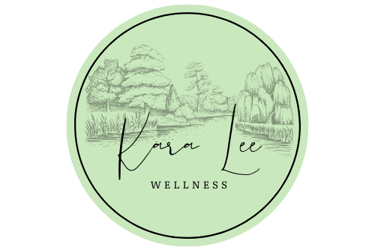From Frustration to Fun: How to Help Picky Kids Enjoy Healthy Foods
This blog is to help you navigate picky eating in children and how to help support them to consume a greater variety of foods.
LOWERING TOXIC LOADHEALTH AND WELLNESSPICKY EATING


Picky eating has been an age old struggle among parents and children and it seems to be more prevalent then ever.
I want to share with you some of the reasons why your child might be on the pickier or more selective side and ways you can support them to increase variety of foods in their diet. So if you are ready to have less meal time hassles read on!
First, I want to say that there is always new information coming out on why children are or become pickier eaters. I will try to cover most of them, but may miss some as the health and wellness field is always evolving.
Some of the main reasons I see picky eating in children are: lack of minerals/overabundance of heavy metals, parasites, poor digestion due to bacteria, viruses, etc., low stomach acid due to bacteria, mineral deficiencies, and/or stress, physical shape of the mouth, jaw, and airway, and neurological implications. All of these in reality are interconnected and can vary for each child what the main factors are, but these are the main areas to address for picky eating.
Before I get into the physiological side of supporting picky eaters, I do want to go over some helpful tips to make meal times a little more fun instead of always a constant fight. Most of these tips come from Ellyn Satter's Division of Responsibility protocol which was helpful from an outward standpoint of supporting an encouraging meal time. The main concepts of division of responsibility are:
Try to have regular meal and snack times
Have most meals and snacks together at the table
Parent is in charge of what is served and when
Child is in charge of what to eat from what is served and how much
Offer just a small amount of water with meals and limit how much liquid besides water they get throughout the day
Some other tips I like to add in are:
When they are very little allow them to make messes with their food. This is how they get used to textures and lead into enjoying the eating experience.
Don't make them finish their food. Encouraging is fine if they are distracted, but forcing teaches them to ignore their hunger and fullness cues.
Offer a new food with other familiar foods. It is less "threatening" that way.
Have children help prepare and pick out the food that is served.
Provide balanced meals and snacks with protein, fat, and carbohydrate to support blood sugar balance and fewer hangry outbursts or sugar crashes.
Lead by example, if you want to encourage a certain food, show the child you are willing to eat it.
Encouraging plenty of physical activity and outdoor time encourages hearty appetites.
Make meal times as slow and enjoyable as possible if kids feel rushed it is harder to eat a variety of foods.
Ok, now that we have addressed some helpful "external" suggestions let's get into the meat of how to support your child internally.
The first place I look is making sure the child is able to chew well and is chewing well. I am not a speech or occupational therapist, so if there is concern about chewing or swallowing that is where I will refer people to start. Also, if the shape of the jaw is narrow or the child has issues with mouth breathing or grinding teeth at night, myofunctional therapy or airway assessment would be worth looking into.
From there supporting adequate stomach acid is super important. This is helped by encouraging the child to slow down, chew their food and decreasing areas of stress. Zinc is an important mineral that helps support stomach acid and if low could benefit the child by incorporating zinc foods such as meats, sardines, and oyster. Obviously supplementation could be warranted if the child does not consume those foods.
Working to remove parasites, heavy metals, viruses, bacteria, mold or fungus would all be helpful for supporting healthy digestion and supporting the gut brain connection. If there are disturbances in the gut-brain connection that will alter mineral status and absorption of vitamins. Again, vitamins and minerals are important for appropriate taste bud perception and sometimes why kids don't seem to like certain foods is because their taste buds have actually been altered through lack of minerals due to having heavy metals, parasites, viruses, bacteria, and mold/fungus. Zinc, iron, and magnesium are big players to support appropriate taste bud perception and therefore can support less pickiness. Calcium can also be beneficial as well. One supplement I enjoy to get a good balance of those main minerals is Cal Mag Zinc by Trace Minerals which can be found on Fullscript.
Adding in minerals can be beneficial for many reasons as they can help displace the heavy metals and help nourish the body so it functions as it should so it removes the parasites, viruses, etc. This is why I really love the hair analysis to see what areas are really needing support to help support the child's body overall. Whether it is low minerals, poor mineral absorption, or high heavy metals it will help determine the best direction for that child.
Another side that I utilize to support removal of these "invaders" as I like to call them is utilizing herbs! Herbs are extremely effective while being gentle on the system. Herbs will also cover multiple bases and can be used to remove virus, bacteria, and mold or virus and parasites. Some of my favorites are from Supreme Nutrition as they are single ingredient herbs from the cleanest sources so there are no extra ingredients to worry about.
For mold/fungus/candida- Scuttelaria and Acerola is great for kids
Heavy metals- minerals mostly depending on what heavy metals will determine what minerals are needed. If utilizing a binder Takesumi by Supreme is great.
Parasites- Black Walnut and Artemisia, specific minerals that child tests for, pumpkin seeds
Virus/bacteria- depends on what is present, but Woad is great for viruses and Elderberry for viruses. Scuttelaria and Acerola are also helpful for viruses and usnea is also helpful for bacteria. Illicium is also helpful for both.
If you wanted to check out any of the Supreme Nutrition herbs feel free to head to my dispensary and use code: KB5153. I do receive a small commission on supplements purchased at no extra cost to you. I would never recommend something I haven't researched/used myself and we have used Supreme and have really loved it.
A quick note on the neurological side of things, many neurological symptoms are driven by lack of vitamins/minerals and invaders. This is why I state that the body is interconnected and why if you address those areas, many of the neurological symptoms aren't as much of a factor anymore. Again it requires an individualized approach, but just wanted to make that note.
At the end of the day there is more to your child's picky eating than just being stubborn or unwilling. Sure once in a while that can be the case, but we have a lot of research out there sharing about how there are other factors such as deficiencies, invaders, and neurological factors that impact a child's ability to try new foods.
If your child is a picky eater and you are wanting to really dig in and see what the main factors are in what is causing the pickiness I would love to work with you! Utilizing the hair analysis is a great way to determine what those factors are and we would set up a game plan of exactly what your child needs to see the improvement in variety of intake.
If you have any questions feel free to reach out! I am here to support you and your family to live your best and healthiest lives.
If you want to nerd out like I do on more studies regarding the factors discussed above and picky eating feel, free to check these out!
https://pmc.ncbi.nlm.nih.gov/articles/PMC8308333/


